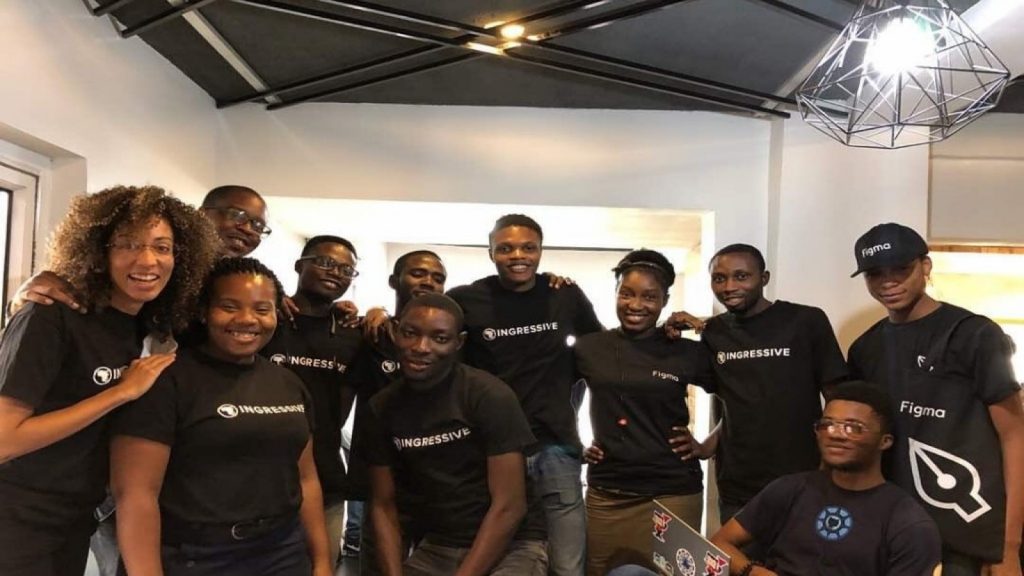AI is disrupting education. But despite what the headlines (and some ChatGPT horror stories) might suggest, South African teachers aren’t being replaced — they’re…
An insight into how Ingressive Capital invests in African startups


This article is brought to you as part of a new partnership between two of Africa's foremost news and information platforms for African tech startups, Ventureburn and Techpoint Africa.
Ingressive Capital, the venture capital fund focused on early-stage African tech, recently completed its $10 million fund.
According to information on the firm’s website, the fund is committed to supporting the next generation of African innovators.
Ingressive Capital is one of Africa’s most recognised early-stage venture capital funds
Launched three years ago, Ingressive Capital has become one of Africa’s most recognised early-stage venture capital funds. Before the completion of its $10-million fund, Ingressive was investing $50 000 to $100 000 but now, it has doubled that. For perspective, Ingressive Capital’s ticket size is larger than that of US-based accelerator, Y Combinator.
The fund also claims to provide follow-on funding for portfolio companies via its own top-tier investor base which includes names like Michael Seibel, Y Combinator CEO; Techstars; and Platform Capital.
Therefore, there is no better time to find out how the venture capital fund invests from its founder and managing partner, Maya Horgan Famodu, one of the most ambitious VCs you’ll meet on the continent.
At 23, she began working towards bringing ten of some of the world’s top investors to invest in African startups. These investors have either established joint ventures (JVs) or made angel investments or made partnerships with companies in Nigeria.
Over time, Ingressive Capital has worked with 50 different international firms that have gone on to do more than 40 deals in Nigeria.
Here are some insights into how the venture capital firm invests.
What market Ingressive Capital is interested in and why?
Ingressive Capital is mostly interested in Africa’s traditional billion-dollar industries. And the tech-enabled solutions that plug in either drastically impact unit economics that either bring transparency to marketplaces or provide Internet connectivity solutions that didn’t previously exist.
These are some of the areas we are very interested in and on the B2C side, we look at the Internet and financial services. I love unsexy tech: infrastructure technology, agriculture tech, the stuff that doesn’t sound very cool, stuff that isn’t trending. I love basic practical technology that is geared towards and built for Africa’s traditional billion-dollar industries.
How do you determine that a startup is investible?
We determine if a startup is investible by the traditional venture metrics as well as the number of proprietary diligence points that we built out from companies that we’ve looked at.
So we look at everything from where the company is incorporated, its structure, how much equity the founders own, how many more rounds they need to raise before potential liquidity, and of course, the total addressable market (TAM), the financials, and the growth projections (last 6-12 months of growth).
We only invest in post-launch founders and we look at the traction because we really want to understand the integrity, responsibility, and the founders’ critical analysis skills. Now that we are remote, our diligence process has changed in that we now have proxies for trust-building which have proven to be more efficient than the process that we had before COVID-19.
For the trust components, we are now doing a lot more interviews with former employees and employers as well as co-investors and people who’ve worked with the founders. Of course, we also look at the traditional diligence components like total addressable markets, product-market fit, defensibility and financials, growth projections, proprietary technology and things like that. The TAM, defensibility, the founder, and team are the most important things to us.
By Ingressive Capital’s standards, what should a startup not be doing?
Startups should not be presenting anything over a 10-12 or 15-page deck. A startup should not send a lot of text and pages of documents to an initial investor.
A startup should not randomly call investors without accessing their investment strategies and looking for businesses within the same industry and geographical focus, they need to do their research first.
Also, a startup should not launch without having a team, a finished product, or an initial prototype. Startups should not be so concerned with idea poaching that they refuse to talk about their ideas to investors, potential colleagues, or potential partners, and end up shooting themselves in the foot, consequently.
A startup should not waste money on marketing before they have understood their retention and engagement components. A startup shouldn’t start fundraising for short periods; they should always be thinking of 12-24 months of fundraising when they raise capital.
A founder should not try to build multiple businesses at the same time. They should not disavow their own spiritual, emotional, and mental health when building a business. It is fundamental that they prioritise those things so that they can successfully build the company.
A founder should not ignore the need to properly incentivise the workforce. Finally, in a startup, everyone should be paid the market-rate or have additional incentives that align with the company’s interests.
At what stage of growth do you usually invest in startups?
Typically, we invest in companies that have traction and a valuation below $5m. They must have found product-market fit and also, they must be a complete team with industry expertise and in-house technical skills that are within our specific verticals where we invest. They should also target billion-dollar market opportunities.
How does Ingressive Capital deal with bad investments?
We don’t have any bad investments and ideally, we don’t do any bad investments. But if our companies are struggling, of course, we provide all the support and guidance that we can from our limited partners.
We don’t leave anyone behind; as long as they’re willing, open, and receptive to our support and advice, we are there for our companies.
I think the biggest feedback we get from our portfolio companies is that we provide consistent business development and fundraising support, as well as advice in any way that we can. Also, we offer them our network and access to ensure that they have the resources required to succeed.
I think how close and open we are with our resources is what differentiates us from other firms. Through our network of Limited Partners, we have a lot of global access that we are constantly sharing and getting feedback and input on our portfolio companies’ needs.
What industries are of most interest to you?
The industries that are always interesting to me are B2B tech-enabled solutions targeting Africa’s traditional billion-dollar sectors.
What is Ingressive Capital’s average ticket size?
We write $200k to $400k cheque sizes in the companies and target 10% ownership.
What investment opportunities have you regrettably passed on and why?
When we passed off on the great deals we were looking at there were good reasons. They either didn’t fit with our investment strategy or were far outside our target ticket size and at what point we invest. Also, there were some specifics with the legality of the team dynamics that didn’t pass our investment committee.
Although our diligence process is constantly changing, each of the deals we invested in, or didn’t invest in, helped fine tune our investment strategy and teach us something new.
So I would say there’s nothing that we deeply regret, there’s a reason we didn’t do the deals that we considered. Those other deals are still part of our diligence process which we’ve consequently updated, so all of them were necessary.
Which startups are currently in your portfolio? Would you like to disclose how much you’ve invested in them?
We would not like to disclose how much we’ve invested in them individually but we’ve invested in a couple of startups like Paystack and 54gene among others. They are listed on our website.
How can startup founders reach Ingressive Capital?
Founders can apply for funding by emailing uwem@ingressive.co for deals in Nigeria; william@ingressive.co for opportunities in Ghana; or apply at www.ingressivecapital.com for opportunities elsewhere in Africa.
The original version of this article appeared on Techpoint Africa on 6 July. See it here.
Featured image: Ingressive team members (Supplied)

